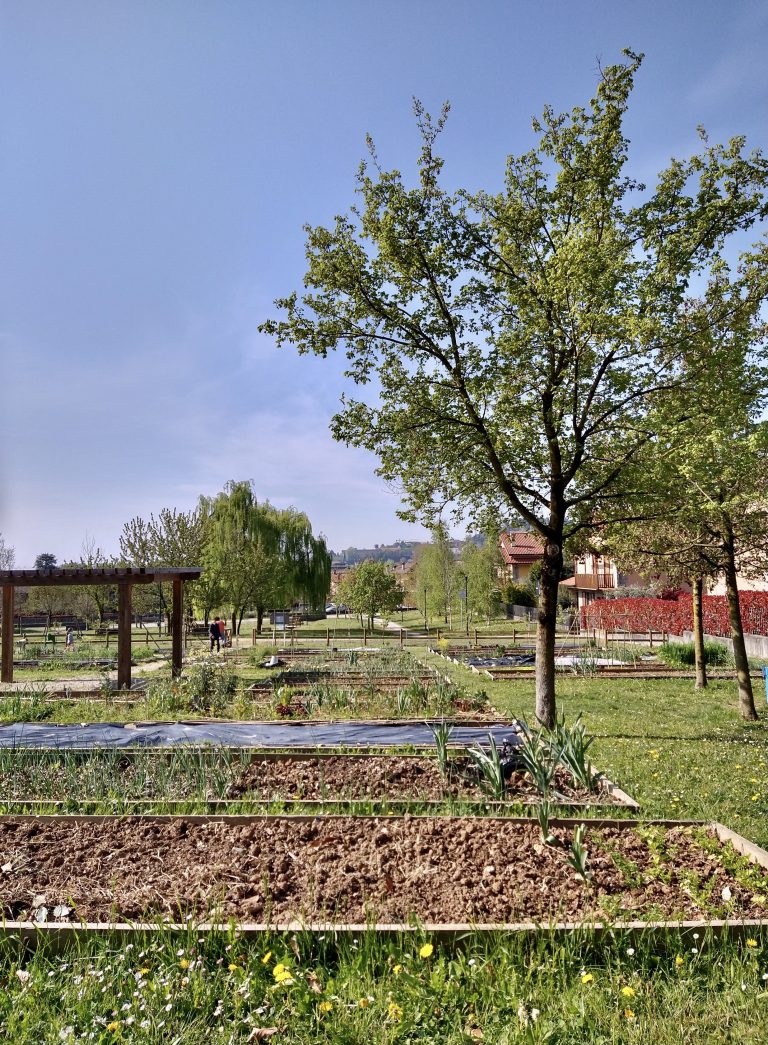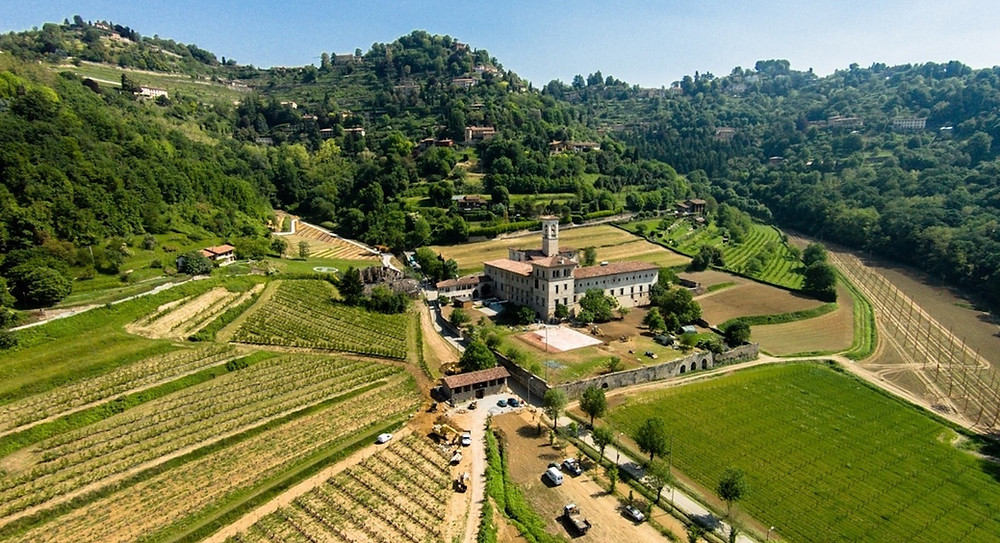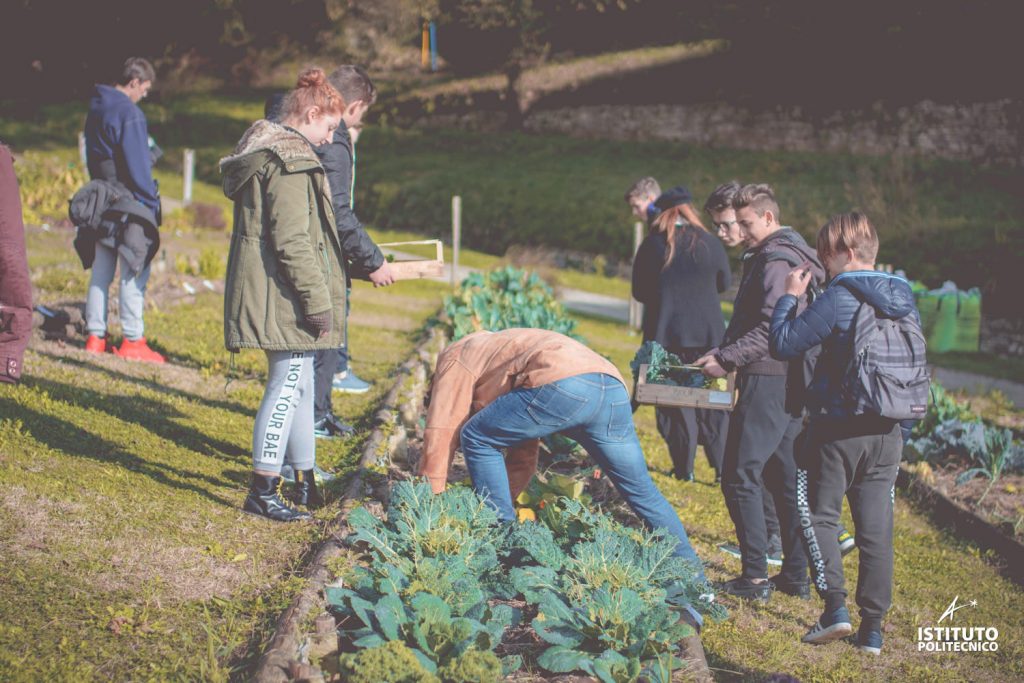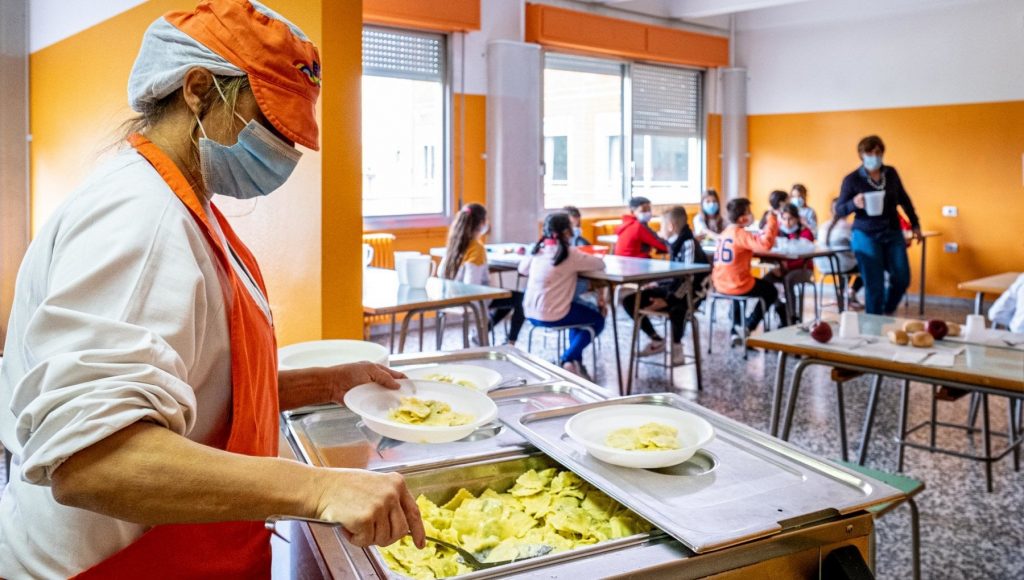When the people step out into the biodiversity valley, they are at first overwhelmed by the profusion of colours. The royal purple of cabbages, the green gradients of the rustling leeks are a far cry from the urban landscape just minutes away.
Employees and volunteers from all stripes of life set to work there for the day, planting, watering and pruning, expressing a tenderness for the world around them. School children to the elderly, migrants to locals, and everyone in between can enjoy the feeling of the sun and the breeze on their bared forearms as they work the earth. And these are just some of the groups that the city is using food policy to engage around the topics of health, sustainability and community.

Grass roots and root vegetables
“We set up our Food Policy Council in 2015, on the initiative of Mayor Giorgio Gori,” explains Davide Zarri, Project Officer for Food Trails in Bergamo, “We’ve got farmers’ associations, the University of Bergamo, we’ve got local associations, foodbanks, grassroots communities, and the idea is to get constant feedback on projects, initiatives and events about food throughout the city. “
The council works with all these groups to make sure everyone is included and can be touched by food policy in one way or another. Together, they’re working on a strategy that will coalesce the priorities of all these food actors. This, says Zarri, “will give Bergamo a vision for the transition to a sustainable and healthier food system.”
The council is also useful in bringing together very different groups to cooperate on questions like how to tackle food waste, encourage biodiversity, and coordinate food events across the city. Despite some difficulty organizing the resources to coordinate this council as a result of the Covid-19 pandemic, Zarri is emphatic that its work must and will continue. “We’d like to have them meet at least once per month,” he explains, “but right now that’s a big challenge.”

Stepping into paradise
The Food Council is just one of the excellent practices that Bergamo is developing locally and promoting in other European cities through our EU-funded Food Trails project. Its spirit of inclusion also permeates work through the topic of food on sustainability, integration, the local economy and the labor market.
The Biodiversity Valley, where Bergamo’s children and locals alike come to dig into some practical work while learning about issues like sustainable food chains, is run by Bergamo’s botanical gardens – one of the largest in Europe – which in turn is run by the city. It is taken care of by employees of the Botanical Garden and by volunteers from Associazione Amici dell’Orto Botanico – Valle della Biodiversity, ‘Friends of the Botanical Garden.’ Besides overseeing the raised beds, its 67 members also support cultural initiatives.

The Biodiversity Valley is a 3-hectare urban gardening project couched within the 60-hectare Astino Valley. Astino Valley, which received the 2020 Italian Landscape Award and the 2021 Council of Europe Landscape Award, has more than 1,200 varieties of more than 600 plants, including fruit and vegetables. “There’s just a small hill separating it from the urban area,” Zarri says, “you just need to cross the hill and you’re in a paradise, natural paradise within the city. It’s like another world.” The wider Astino Valley is managed by farm producers gathered in the Associazione Produttori Agricoli Biologici della Valle d’Astino, or ‘Astino Valley Organic Farmer Producers Association.’ These are mainly social cooperatives that put strong emphasis on helping vulnerable groups to re-enter society.

Many of those keeping the Biodiversity Valley going are volunteer urban-gardeners, including vulnerable groups, but their work is supplemented by regular visits from school children and others. According to Zarri, “it’s a very important place for schools – it’s like an open-air museum.”

In exchange for a donation, visitors can pick food from the branches and bring it home. Events range from workshops on climate change, to healthy eating, mixed in with a good deal of physical activity in the garden.
Canteen revolution
Engaging school-aged children around food is a key strategy for Bergamo, both to ensure health and sustainability become core values of future generations, and so that children can bring the message home to their parents, who may be harder to reach. Another big advantage with this generation is that they get really excited about working on food.
Through the Food Trails project, Bergamo will be piloting a program that focuses on school canteens. It will change the menu to reduce meat consumption while increasing the share of protein from plant-based foods. Food will also find its way into the classroom, educational activity that will be supplemented by workshops that include kids, families, teachers and cooking staff.

Cyber crops
However, you can also get deeply involved in food and sustainability in Bergamo without getting your hands dirty at all – without even getting out of bed. Five years ago, the city launched Bergamo Green, an online platform. “It’s a way to link producers and consumers,” Zarri elucidates.
“It gathers alternative food networks, green shops, farmers’ markets, urban vegetable gardens and even school vegetable gardens.” If you can buy or eat local food there, it’s listed. “This is a great way to support local producers – it helps the local economy and encourages short, sustainable food chains.”

Now, the city is trying to go even further with Bergamo Green, since the covid-19 pandemic has whetted people’s appetites for buying online. “We want to link Bergamo Green with an e-commerce platform, so local people can also buy food online directly from these local producers.”
Food for freedom
One of the producers listed on the platform also happens to be the local prison. Inmates there can find paid work in the prison bakery. “It’s a really good bakery,” Zarri confesses, “It brings the people in jail new skills that they can use to find a job and start a new life once they are outside.” Their sweet cakes are a popular choice among locals, and a vehicle for the city’s awareness raising. They also provide bread to Bergamo’s schools.
The prison bakery is named Dolci Sogni Liberi , or ‘Sweet Dreams of Freedom.’ However, this idea of freedom does not just allude to the eventual release of the prisoners. Freedom is a potential that is inherent within our cities’ food systems – the freedom enjoyed by a health body, the horizons opened up by a sustainable planet, and the boundless energy of open communities. These are sweet dreams indeed and, in this respect only, Bergamo is a city with a very sweet tooth.


